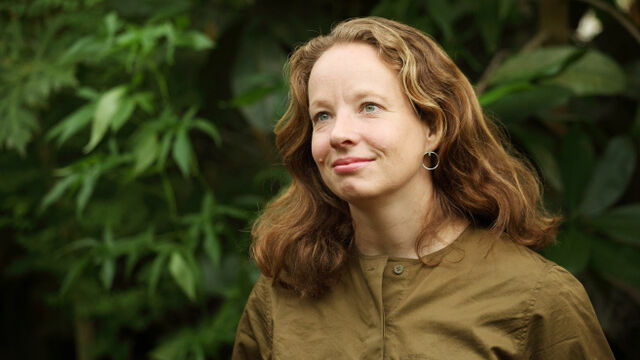Transformative Climate Media for Urban Futures: Speakers & Abstracts
Sarah Barns
Sarah works as a creative director and strategist to bring diverse storytelling programs into public precincts. She is co-founder of experiential arts and media practice Esem Projects, founder of storybox.co and supports digital placemaking programs and strategies as a leading thinker in the field of platform urbanism and digital futures. Sarah’s work on climate storytelling supports the creation of alternate public interfaces, storytelling platforms and engagement methods that recognise the role of contemporary media ecologies in shaping wider awareness of transformations and connections to place and habitat. In 2021 she led the creation of Superorganism as an immersive sound installation dedicated to the ideas of James Lovelock, and works with a range of community groups and storytellers through storybox.co to bring Climate Futures storytelling into public places and precincts.
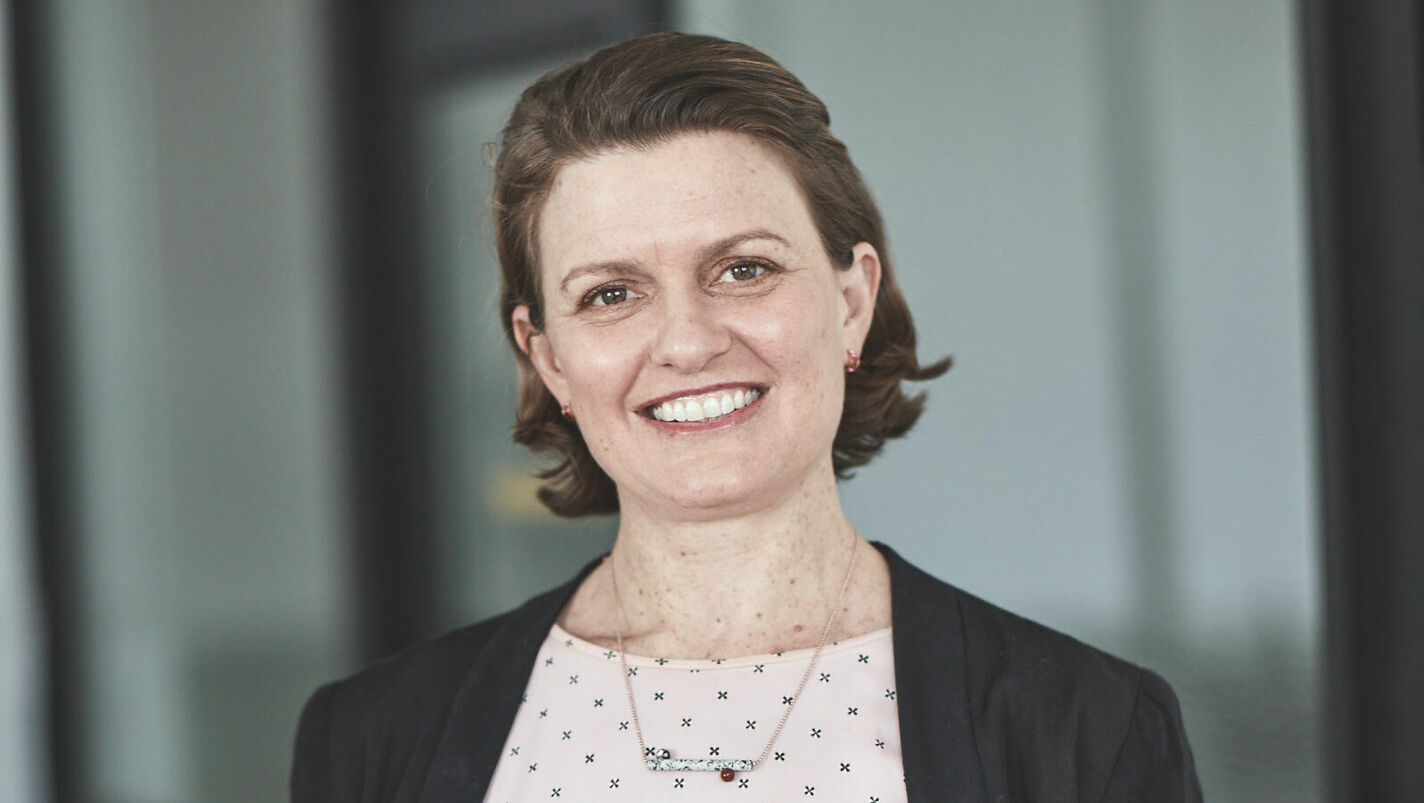
Ilan Chabay
Ilan Chabay is Head of Strategic Science Initiatives and Senior Investigator in the “Real Deal” European Commission project at the Institute for Advanced Sustainability Studies (IASS) in Potsdam Germany. He is Chair of the External Research Evaluation Committee of the Research Institute for Humanity and Nature in Kyoto, Japan and Adjunct Professor in the School of Sustainability, Arizona State University, at the Barrett & O’Connor Center in Washington, DC USA. He co-leads KLASICA (Knowledge, Learning, and Societal Change Alliance), an open international hub, which he founded in 2008, that aims to catalyze collective behavior change to emergent cultures of sustainability through innovative thinking, research, and practice. Of particular interest are the influence of narratives visions and social identity on sustainable futures in diverse communities and their application to anticipatory modeling. After his first career of forefront research in laser physics and chemistry at National Institutes of Standards and Technology and Stanford University, he became associate director of The Exploratorium Science Museum (San Francisco), then founder and president of a company in Silicon Valley designing and producing interactive exhibitions for 230 museums around the world, including Disney, the Smithsonian, and NASA. In 2006 he began his third career in sociology and sustainability science, first as Hasselblad Foundation Chair in the departments of sociology and applied IT at the University of Gothenburg and Chalmers University, Sweden. In 2012 he joined IASS in Germany. In addition to his research and 90 publications in both natural and social sciences, he continues designing games to inspire people for a more sustainable future.
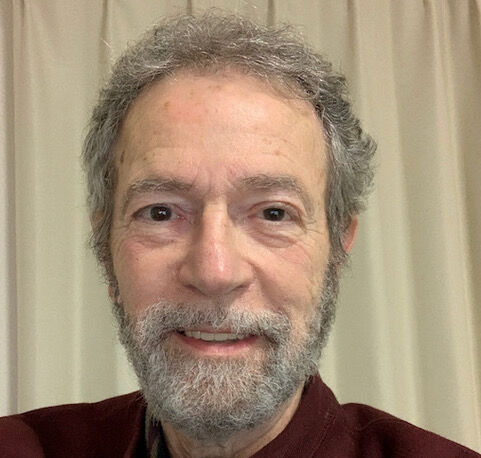
Tobias Conradi
Dr. Tobias Conradi is Senior Research Associate at HSLU Lucerne, working in the research project ‘Interactive Documentaries’. He was scientific coordinator for the Collaborative Research Center “Media of Cooperation” at the University of Siegen (2019/2020), Senior Scientist at the University of Vienna (2018/2019) and postdoc at the Brandenburg Center for Media Studies and in the research project “Business Games as a Cultural Technique”. In 2018 he was Max Kade Visiting Professor at the University of Cincinnati.
His research interests include media and decision-making processes; theories of discourse and politics of representation; the connections between crisis, critique and decision-making.
Last published: “Pure, Clinical, Shiny Surfaces. Recreational Drones and Images of Construction and Destruction” In: Winfried Gerling/Florian Krautkrämer (Hg.): Versatile Camcorders. Looking at the GoPro-Movement. Berlin: Kadmos 2021, S. 105-120.
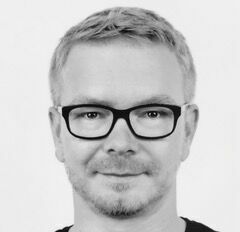
Tobias Gralke
Tobias is a project developer & researcher at the Climate Media Factory with more than ten years of experience in the cultural sector and in political education. He has worked for and with a wide range of organizations such as NGOs, cultural institutions, think tanks, universities, schools, and self-organized groups – as a trainer & facilitator, theatre-maker & project developer, writer & speaker, research fellow & lecturer. Tobias studied Literature and Philosophy in Freiburg (B.A.), Cultural Studies in Hildesheim (M.A.) as well as Human Rights (School of Advanced Study) and Sustainable Development (SOAS) at the University of London (PG Cert). Currently he’s conducting a Ph.D. project on urban climate adaptation at the Film University Babelsberg and a B.Sc. in Psychology at the IPU Berlin. Tobias is particularly interested in intersections between different disciplines, methods, forms, and perspectives. More information: tobiasgralke.de
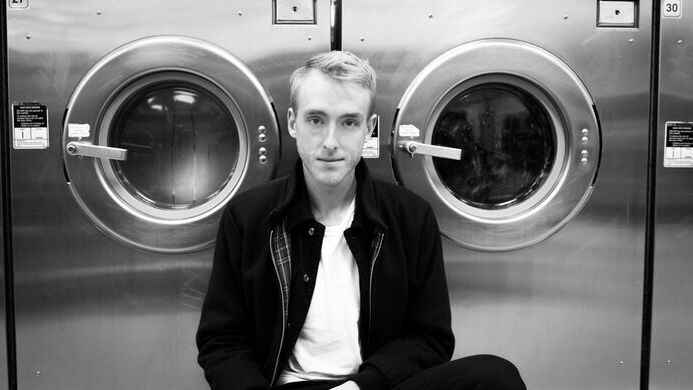
Bernd Hezel
Bernd Hezel investigates, designs and realises audio-visual climate change communication formats at the Climate Media Factory. As visiting professor at the Film University Babelsberg, he deals with stories about / images of the future and operative media forms that can motivate people to imagine, negotiate and create alternative futures. Previously, he worked at the Potsdam Institute for Climate Impact Research on a decarbonisation model for Europe and made it interactively accessible for decision support. He contributed to award-winning theatre productions and wrote and directed many animated short films, several of which won international festivals. In 2010, he received a doctoral degree from Heidelberg University for work in quantum theory.
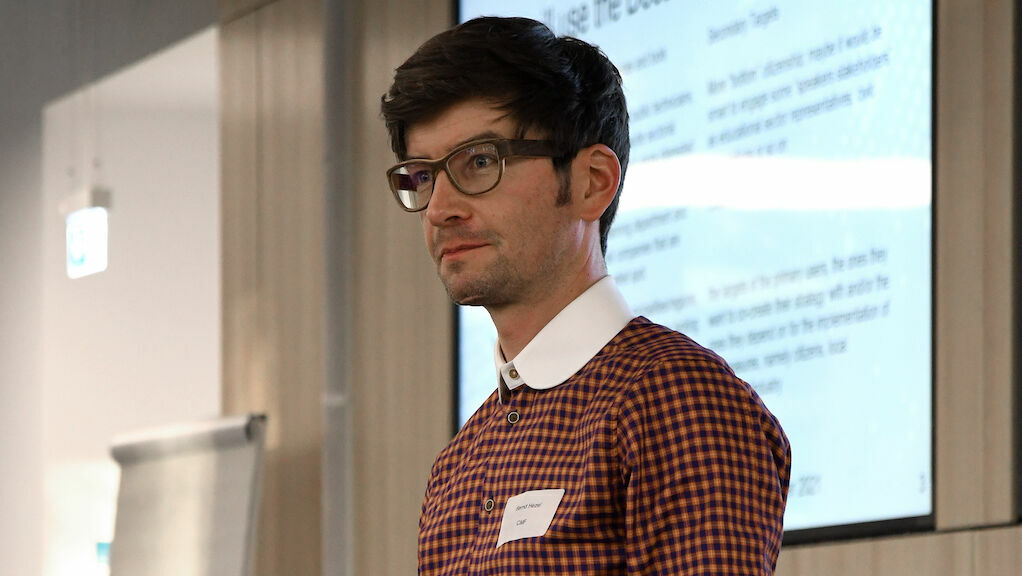
Melissa Ingaruca
Melissa Ingaruca is a researcher, artist and designer in multispecies urbanism, climate neutral cities and urban sustainability transformations. Currently, she is a PhD Candidate for the University of Helsinki exploring transdisciplinary research for designing multispecies cities with emerging technologies (including sensory and immersive technologies), fellow at the Next Generation Foresight Practitioners (NGFP) network (holding the 2022 main award to implement an experiential foresight summer school for multispecies cities in Berlin); early-career member of NATURA (Nature-based solutions for Urban Resilience in the Anthropocene) and designer in a myco-fabrication community in Berlin (biofabrication with mycelium).
Her research and practice has explored what is “radical” in radical urban futures, and how can we trigger “transformative” imagination. She addresses the dominant mechanical/dualistic/anthropocentric worldviews underpinning current urban design practice and cities imaginaries, and explores the opportunities of embracing alternative relational worldviews such as multispecies thinking as the seeds for radical futures, in storytelling, in scenario building, and the use of emerging technologies (extended reality technologies and biofabrication technologies) in urban design.
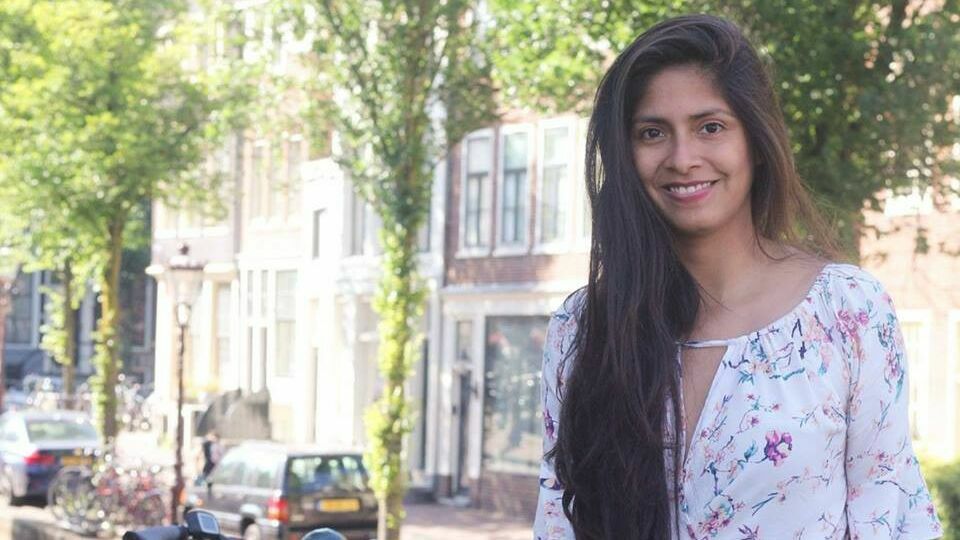
Steffen Krämer
Steffen Krämer (Dr. phil.) is postdoctoral researcher in media studies at the University of Konstanz at the Research Institute Social Cohesion.

Nadine Kuhla von Bergmann
Dr. Nadine Kuhla von Bergmann is the founder of Creative Climate Cities (CCC) and an expert in the design and management of smart city pilot projects and co-creative transformation processes. CCC supports utilities companies, city administration and service providers to implement sustainable urban development and climate-neutral neighborhood projects.

Moritz Maikämper
Moritz Maikämper has studied urban planning. He is research assistant at the ARL – Academy for Territorial Development in the Leibniz Association.

Myriel Milicevic
Myriel Milićević is an artist, interaction designer and professor in the Department of Design at the University of Applied Sciences Potsdam. She explores the hidden interconnections between people and their natural, social, and technical environments and inquires spaces of impossibilities, re-alignment of perspectives and co-existence with other beings. These explorations are mostly of a participatory and collaborative nature and take form in practical-utopian models, processes, mappings and stories: turning a city’s energy leaks into power sources, drawing counter-cycles to the nitrogen spills in our landscapes, guiding butterflies to new meadows in the Rocky Mountains, planting and regrowing political systems, playing biopiracy through Crops & Robbers, or telling tales with people in the hills of Thailand.
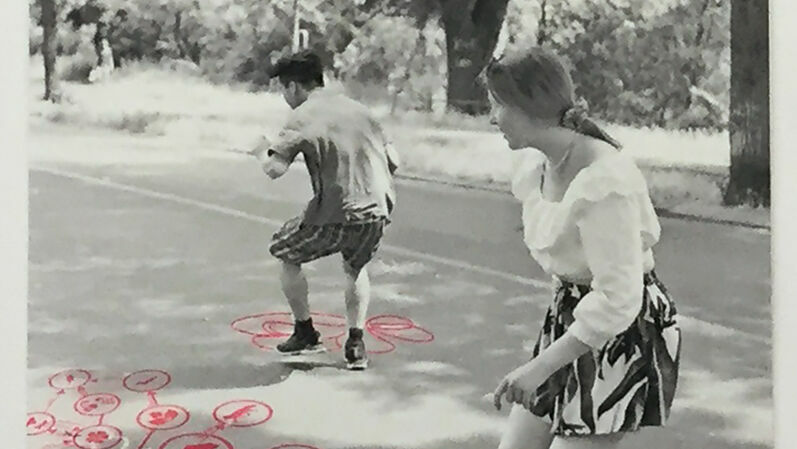
Catalina Ortiz
Catalina Ortiz is a Colombian urbanist and educator passionate about spatial justice. She has a BA in Architecture from the Universidad Nacional de Colombia where I also did a master’s degree in Urban and Regional Studies. She also holds a PhD in Urban Planning and Policy from the University of Illinois at Chicago as a Fulbright scholar.
Catalina Ortiz's professional experience spans over two decades focusing on teaching, research and consultancy linked to international organisations, national and local governments around urban projects, and spatial planning issues mostly in Latin America. She worked as a senior consultant in urban development for the Inter-American Bank, the Cities Alliance Program, the Informal City Requalification Foundation (ReCI), and most recently for the Future Cities programme from the UK Foreign Commonwealth Office. Before joining UCL, Catalina Ortiz worked at the National University of Colombia (Medellin), where I was the Urban and Regional Planning Director at the School of Architecture. She's also been a visiting fellow at the Latin Lab, GSAPP, Columbia University and DUSP, MIT.
Keenly aware of the collective work required to shift out field of studies, Catalina Ortiz is corresponding editor of Urban Studies and part of the editorial board of the Revista Brasileira de Estudos Urbanos e Regionais (Brazil), Revista de Urbanismo (Chile), and the Revista Bitácora Urbano Territorial (Colombia). She is also part of the UCL UrbanLab steering committee, an LSE Saw Swee Hock Southeast Asia Centre associate and a trustee of the Charity Latin Elephant.
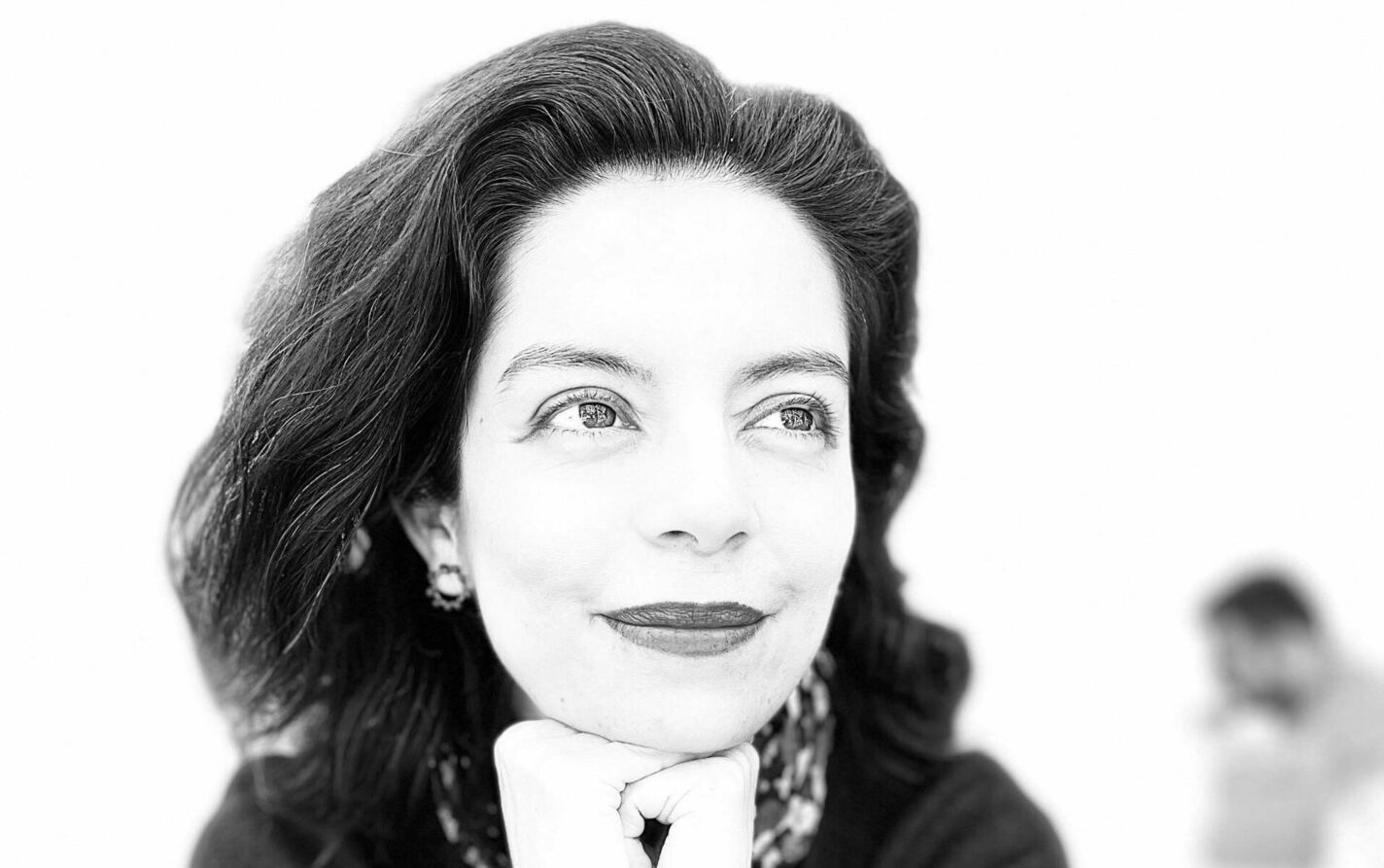
Eleni-Ira Panourgia
Eleni-Ira Panourgia is a Postdoctoral Research Fellow at Filmuniversität Babelsberg KONRAD WOLF working on the project ‘Listening to Climate Change’ funded by Postdoc Network Brandenburg. Her work focuses on intersections and combinations of visual-spatial and sonic dimensions in a responsive and interactive way in relation to materials, environments and technologies. She has completed a PhD in Art (2019) titled ‘Co-composition processes: form, structure and time across sculpture and sound’ at the University of Edinburgh as a Scholar of the Onassis Foundation. She holds an integrated Masters Degree in Sculpture and Visual Arts (2014) from Athens School of Fine Arts. She has studied at the École Nationale Supérieure des Beaux-Arts de Paris as an Erasmus exchange student (2012-13). She has also studied music performance of piano and cello, and holds a degree in Harmony (2008) from Aghia Paraskevi School of Music in Athens, Greece. She's an Associate Fellow of Higher Education Academy and co-founder and managing editor of Airea: Arts and Interdisciplinary Research journal hosted by Edinburgh University Library.
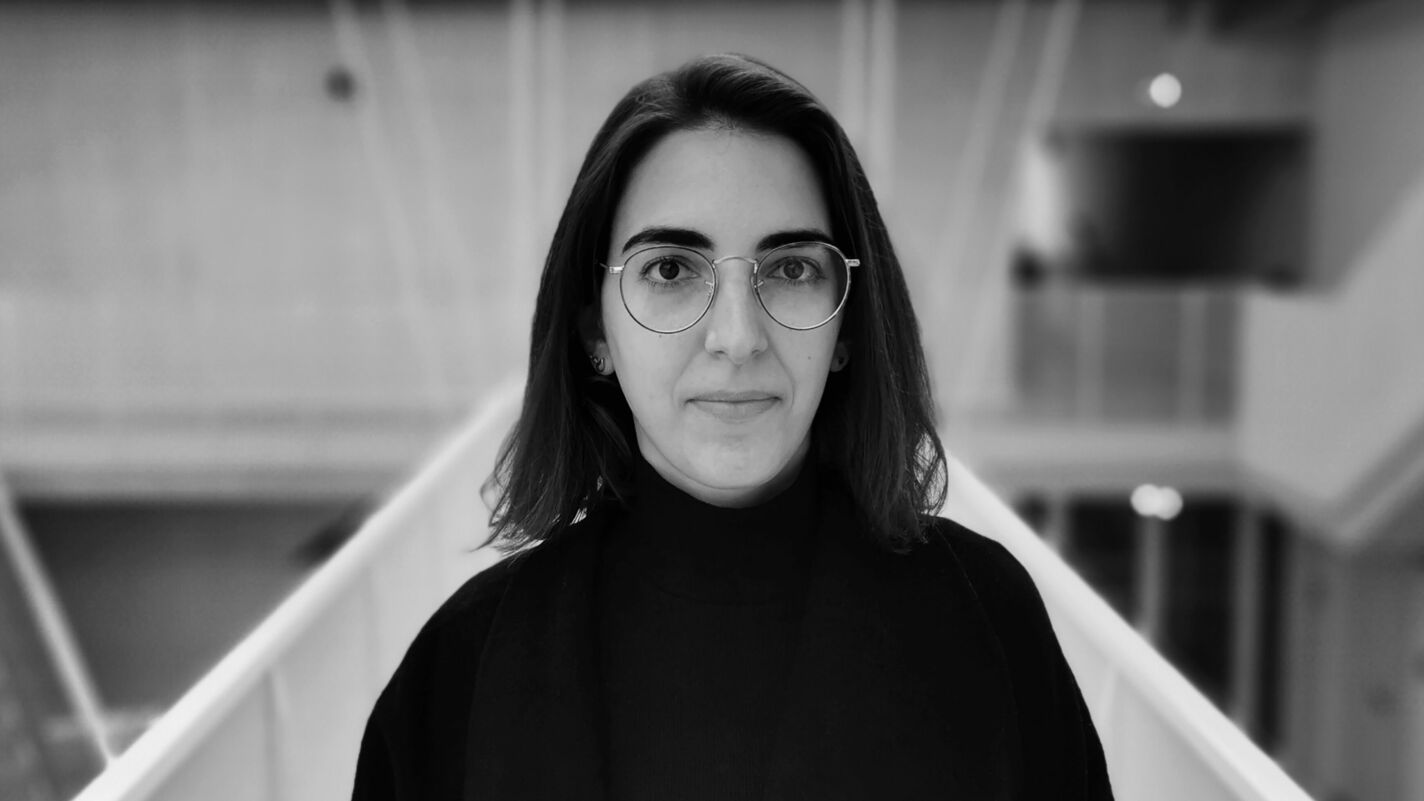
Imanuel Schipper
Imanuel Schipper is a senior lecturer for Contemporary Performance & Dramaturgy at the Theatre Academy/Uniarts Helsinki and a scholar for Dramaturgy, Cultural and Performance Studies at the CityScienceLab at HafenCity University Hamburg. His research covers contemporary concepts of dramaturgy, performance studies and digital cultures, socially relevant functions of art and concepts of spectatorships. In his career as a Dramaturg (Theatre, Dance, Opera) he collaborated with William Forsythe, Jérome Bel, Luk Perceval and others. He has a long-term working relationship with Rimini Protokoll.
Publications include:
- Rimini Protokoll 2000-2010 (2021, Verlag der Buchhandlung Walther und Franz König)
- Rimini Protokoll: Staat 1-4: Phänomene der Postdemokratie (2018, Theater der Zeit)
- Performing the Digital. Performance Studies and Performances in Digital Cultures (2017, in collaboration with Timon Beyes and Martina Leeker, transcript)

Maren Schuster
Maren works as a media scientist at the Martin Luther University Halle-Wittenberg and is head of the Master's degree program Multimedia and Authorship.
The Master focusing on digital journalism follows the Digital Methods principle of "follow the media" and applies it to the field of digital journalism. The program sees itself as a laboratory. The aim is to use media studies and the methods of other subjects to explore the questions of the digitalized present and to reflect on them in media action. Following this goal, Maren, as a researcher and journalist, develops relevant questions and projects for the modules of the Master and initiates partnerships with science, culture, and media. After a journalistic project coping with the question of why inequality makes people ill, she returns to climate topics again and initiates and realises the project Stadtklima Halle (urban climate Halle). Stadtklima Halle is an augmented reality project hosted by the city museum of Halle and sponsored by Bundeskulturstiftung dealing with climate and human-friendly city of the future and the people of Halle who have been campaigning for local and global climate issues during the last decades.
In her current research, Maren deals with the potential of data and data-driven processes for journalism. She is thus following up on her preliminary work on digital transformation processes in journalism and disinformation. Within her teaching, media and research projects, interdisciplinary work, transfer projects with other disciplines such as ethnology, jurisprudence, or medicine take a special significance. Representation and diversity in journalism and research are particularly relevant to her.
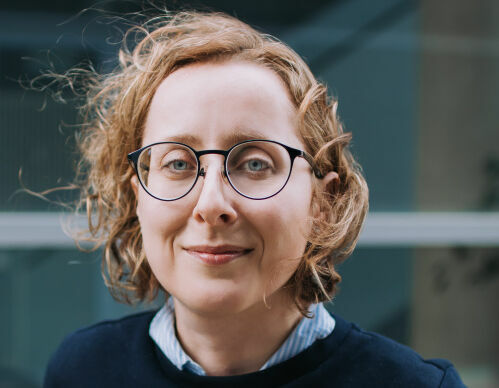
Björn Stockleben
Björn Stockleben is a Professor of New Media Production in the Film and Television Production program of Film University Babelsberg KONRAD WOLF. He teaches interdisciplinary production processes with a particular focus on the integration of design and software development, content-related services, and the development of formats for novel media technologies and platforms. Moreover, he studies for a PhD in the field of data-based decision-making processes in media management at the Tampere University of Technology, Finland. He performs research on perceptive media, online-based creative processes, and big data in the creative industry.
From 1997 to 2003, he studied Media Studies, Media Technology, and Informatics at Hochschule für bildende Künste Braunschweig (Braunschweig University of Art) and Technische Universität (TU) Braunschweig. Between 2004 and 2016, he was involved in the innovation projects of Rundfunk Berlin-Brandenburg as a project engineer and user experience designer and contributed to various EU research projects on the development of content and services for new media technologies and platforms. From 2010 to 2016, he coordinated the Cross Media M.A. program of the Magdeburg-Stendal University of Applied Sciences. He is co-founder of the Nokia Ubimedia Mindtrek Awards (2007 to 2014) and the durchgedreht24 film festival (established in 2003).
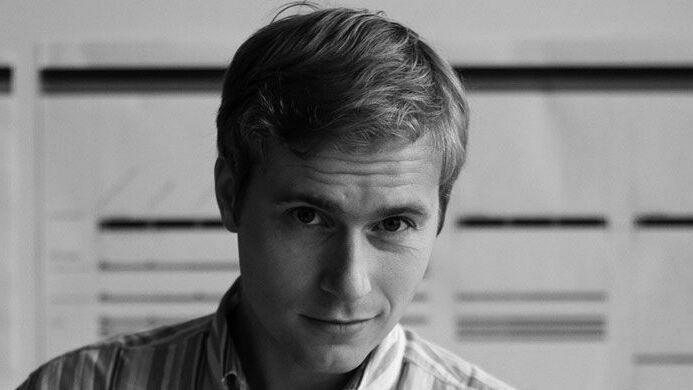
Wytske Versteeg
Wytske Versteeg is an acclaimed novelist, as well as a political scientist. Her PhD-research focused on the negotiations between experience and expertise in everyday talk, after which she worked with the Urban Futures Studio (University of Utrecht).
